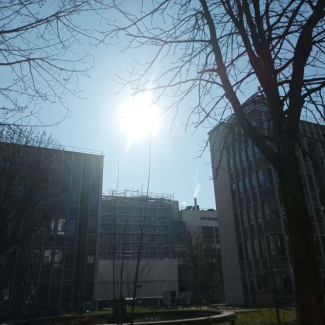
The CNRS looks to the future
“A new impetus for the CNRS, which is committed to conducting world-class basic research in the service of society,” such is the ambition of this CNRS Objectives, Resources, and Performance contract signed on Tuesday 25 March 2025 by Philippe Baptiste, the Minister of Higher Education and Research, and Antoine Petit, the CNRS Chairman & CEO. The organisation revealed, on this occasion, its six new interdisciplinary challenges for the next five years.
A major actor in research and innovation on the international stage, the CNRS has established an ambitious road map, embodied by its Objectives, Resources, and Performance Contract (COMP) signed today with the French government. The organisation reaffirms its commitment to conduct world-class basic research and pursue the impact of French research abroad, all while responding to major societal challenges.
“It is essential because there is no great country without great scientific ambition,” underscores Antoine Petit, the CNRS Chairman & CEO.
To expand its presence across the globe, the CNRS will continue its dynamic of pursuing international collaborations, in a complicated geopolitical context, in which it is important to defend one’s values—freedom of research, free circulation of ideas and scientists—in addition to national and European interests and sovereignty.
This contract includes—and this is an original feature for such a document—a “scientific notebook” identifying forty priorities grouped into seven areas. These priorities, growing out of forward-looking efforts conducted within the CNRS’s ten institutes, will give rise to the organisation’s prominent contributions over the next five years.
At a time when societal challenges call for scientific perspective, science is more indispensable than ever in addressing the crises faced by our societies. That is why the CNRS sought to inscribe within this COMP the six major interdisciplinary challenges to which it aims to make substantial contributions: the brain, the materials of the future, life in the Universe, instrumentation without limits, and generative AI for sciences and societies in transition. Six new challenges that must be explored by mobilising numerous disciplines, with the CNRS being the only research organisation in France capable of doing so.
More information :
- Interview with Antoine Petit, CNRS Chairman & CEO: https://www.cnrs.fr/en/update/through-comp-cnrs-affirms-its-scientific-ambitions-and-priorities-next-5-years
the six challenges in pictures : https://www.youtube.com/watch?v=CMRI2YW8a_E



